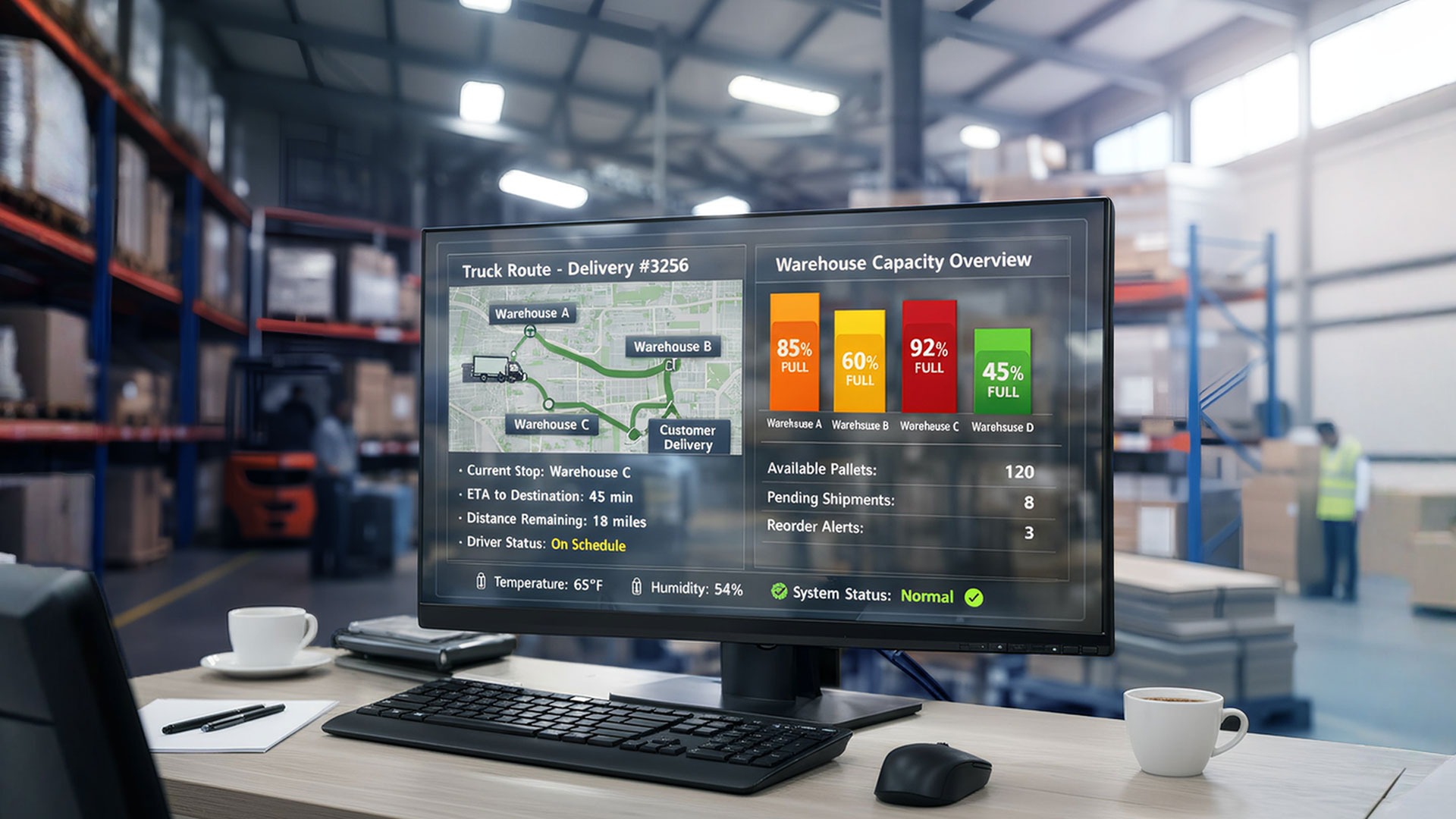
Nowadays, logistics is more than just about transferring goods from point A to point B because of the rapid progressions and abrupt changes in businesses. It entails managing a web of delivery from suppliers to transporters and finally stores. It has become apparent that in order for firms to improve their logistics operations, they must leverage local partnerships due to the growing complexity of the global market. In addition to this being a cost-effective strategy, it also adds value through increased efficiency, dependability, and customer gratification.
In this blog, we will cover all the ways through which firms can employ local collaborations to enhance their logistics. It provides an extensive guide for firms who would like to optimize their logistics by discussing the significance of such relations to actions that they should take to create and maintain them.
The Importance of Local Partnerships in Logistics
- Maximizing Cost Savings
One major advantage of local partnerships in logistics is that they save on costs. This happens because when working with a local supplier, transportation cost is reduced while speedy responsiveness to market changes is enhanced due to shorter lead times. This also has implications for the reduction of large inventories which tie down money and increase storage expenses. In addition, when a firm sources materials from its area, it saves money on shipping fees, minimizes delay risks as well, and reduces any adverse effects caused by long-distance movements resulting in better competitiveness through the transfer of such cost benefits to customers. - Improved Reliability
Reliability often gets better with local partnerships indeed. Also, communication becomes easier and problem resolution faster when working with neighboring partners. A more stable supply chain is thus created with fewer disturbances as well as reduced lead times. In relation to many other sectors where timing heavily weighs on the outcome like food or healthcare; localized connections provide an amazing competitive edge due to their reliability. That way, companies that have reliable local associates can satisfy their customers better resulting in an elevated level of satisfaction and loyalty from them than those without. - Rapid Adaptation to Market Shifts
In today’s volatile marketplace, it is essential that businesses remain able to respond quickly and appropriately to changes. Therefore local partnerships give required flexibility which allows them to adapt easily depending on emerging trends, customer needs as well as economic changes. For instance, immediate adjustments may involve increasing production due to a sudden increase in demand or decreasing it to avoid surplus production hence making use of local partners could be more rapid than distant suppliers. Such responsiveness can play an important role especially when dealing with rapidly changing sectors. For instance in the fashion industry; manufacturers who are based locally can aid brands in exploiting current fads by expediting the introduction of their designs into the market resulting in maximized profits. - Enhanced Customer Experience
Today, customers want quick, trustable, and clear services. Local collaborations can help companies fulfill these demands by cutting down on delivery times, keeping goods in stock, and giving tailored services. Trust in the brand increases when customers understand they can trust a company for fast and accurate deliveries. Together with this, local partnerships can also improve customer experience as they allow businesses to provide more customized products and services. For instance, a local food manufacturer could partner with a nearby farm to sell fresh and locally sourced ingredients that appeal to those valuing sustainability and quality. - Sustainability and Social Responsibility
Gone are the days when sustainability was simply a term in circulation that people did not understand its significance. Businesses as well as consumers have come to appreciate its weightiness. As a result, any company that wants to attain these objectives can enter into partnerships with local suppliers and service providers thereby minimizing their carbon footprints, helping the indigenous people’s economy, and showing that they are socially responsible. Such an emphasis on this important principle can increase the reputation of a brand and draw clients who consider ethics before purchasing anything. Moreover, corporations can support job creation and development in their hometowns by giving backing to indigenous enterprises.
Building and Leveraging Local Partnerships
We have seen the importance of local partnerships in logistics; hence let’s examine how businesses can create and utilize them effectively.
- Identifying Potential Partners
To establish local partnerships, the first thing you need to do is to recognize possible partners who agree with your business goals and values. This could be suppliers, transportation providers, warehousing services, or even local businesses that can enter into a joint venture. So while identifying possible partners think about these factors:
- Proximity: How near is the partner to your operations? Because of normal transportation prices and speedier response times, then you stand to gain if they are close.
- Reputation: How does the partner stand regarding dependability, quality, and customer throughout the years? A partner who has a good name is more likely to make a positive contribution in terms of your logistics.
- Capacity: Is the partner in a position to cater to your current and future needs? You should consider selecting a partner who would progress together with your business as it expands.
- Values: Do they have any commonalities concerning sustainability, quality, and even customer satisfaction? When values are in line with one another there could be less conflict between partners thus their partnership will be more inclined towards production rather than disagreements.
- Establishing Clear Communication Channels
The basis of any prosperous collaboration is effective communication. This entails opening communication channels with your local partners so that in case of arising problems, they can take quick responses since all parties would be reading from the same page. To help you in this regard, we provide some pointers for developing good communication:
- Regular Meetings: Arrange frequent meetings with your partners that involve sharing performance assessments, and discussing any reservations, as well as opportunities for improvement.
- Technology Integration: Utilize technology to enhance communication processes. For example, apply integrated supply chain management systems enabling the real-time information sharing.
- Transparency: Clarify what you expect from them and let them know about the problems you are facing and what you want to achieve. Honest conversations increase confidence and reduce chances of misinterpretation.
- Collaborative Problem Solving
In every business connection, there always exist some issues; however, depending on the way one approaches these difficulties, friendships could stand or fall. Coming up with a problem-solving strategy that involves participation from both parties may help to reveal appropriate answers to both local partners and businesses. Here is an outline of how you can go about engaging in collaborative problem-solving:
- Identify the Root Cause Together: Concentrate on the root cause rather than the symptoms. This often results in more efficacious and permanent resolutions.
- Collaborate on Solutions: Draw your partner into problem-solving. They may have seen something you never thought of or have some resources.
- Implement and Review: After a course of action has been taken, assess its results together. This should always be a matter of discussing moving forward with the partnership.
- Mutual Investment and Growth
Collaborative growth and investment are the foundations of a successful partnership. In the relationship, both parties must gain, and there should be chances for common accomplishments. This could entail capital spent on joint ventures, co-promotion campaigns, or investment in shared infrastructure or technology. Here are some strategies that can be employed to foster mutual growth:
- Joint Ventures: Search for chances of joint ventures or co-branded products that capitalize on their respective strengths.
- Shared Technology: Participate in shared technology or infrastructure investment ventures designed to encourage efficiency and mutual benefits.
- Training and Development: Provide your partners with training and development initiatives to enhance their skills which can also support the needs of your organization.
- Monitoring and Measuring Success
To guarantee that the local partnerships you have are producing the desired outcomes, it is very crucial to constantly oversee and evaluate their achievements. In other words, one needs to come up with precise KPIs (Key Performance Indicators) and discuss them with his/her partners. Some of the main aspects to keep track of include:
- Delivery Timeliness: Do we deliver products in the right time frame? If not, what are some reasons for delays?
- Quality: Is the product or service quality within your desired limits?
- Cost Efficiency: Are you meeting anticipated cost reductions in this collaboration?
- Customer Satisfaction: How has customer satisfaction fared as a result of this partnership? Are there any aspects that could be improved?
This way, we can keep on improving together with our partners by looking at these KPIs regularly so that both parties continue benefiting from the partnership.
- Celebrating Successes Together
In the end, it is very important to notice and appreciate collective achievements. When you show your local partners that you care about their hard work as well as their efforts, this can bolster ties and create a sense of common purpose. Here are some suggestions on how to mark a successful event:
- Public Recognition: Make sure to acknowledge your partner’s achievements in company newsletters, social media, or press releases.
- Joint Celebrations: Organize joint events or celebratory events to commemorate important milestones or accomplishments.
- Incentives: Partners who always achieve better are motivated by giving them bonuses for their continuous good results.
This not only fortifies ties but also encourages your collaborators to keep up good work because they are praised for their successes.
Case Studies: Successful Local Partnerships in Logistics
For instance, let’s consider some business examples to show how local collaborations can benefit logistics.
- Walmart’s Local Sourcing Strategy
When it comes to shopping, one of the biggest names globally is Walmart, and it has positioned local sourcing as an important aspect of its logistics approach. Therefore, by forming collaborations with neighborhood farmers as well as suppliers Walmart has been able to reduce transport costs and price their fresh produce including other goods at competitive rates thus aiding in the growth of local economies.
For instance, in India, this grocery store chain has partnered with small-scale farmers in order to enhance their agricultural methods, and allow them into markets while meeting the quality expectations that were set by Walmart itself. Consequently, this collaboration has ensured that there are supplies for fresh food always available though many small-scale farmer lives have been uplifted too. - Amazon’s Last-Mile Delivery Partnerships
To improve its last-mile delivery services, Amazon, which is famous for quick and dependable delivery services, has utilized local partnerships. This enables Amazon to be able to provide same-day or next-day delivery in several urban areas by collaborating with local courier firms and independent contractors.
These collaborations help Amazon efficiently expand its delivery services with no requirement of having a large internal fleet of vehicles. In turn, the local courier companies enjoy a regular flow of work plus access to cutting-edge logistics technology from Amazon.
- Tesla’s Gigafactory and Local Suppliers
Successful collaborative structures for logistics can be seen in Tesla’s gigafactory situated in Nevada. The electric car manufacturer has teamed up with nearby suppliers to obtain materials and components for its cars to cut down on freight charges and waiting times. These alliances not only provide savings that can be used elsewhere but also increase the possibility of continuity in production. Therefore, when challenges occur, they are in touch with the manufacturers hence responding quickly thus ensuring that there are no breakdowns on the production line which would otherwise lead to a complete shutdown of its operation.
Challenges of Local Partnerships and How to Overcome Them

There are many advantages of local partnerships but there are also some challenges that they come with. Thus, identifying these obstacles and finding ways of resolving them is important in developing effective partnerships.
- Limited Capacity of Local Partners
One of the challenges posed by working with local partners is their limited capacity as compared to larger, more established suppliers. This can become a problem when your company grows suddenly or needs to expand very fast. Some suggestions for overcoming this challenge include:
- Multiple partnerships: Engage several local partners so that you can distribute risks as well as have backup options in case one of them does not meet your demands.
- Development of Partners: Invest in the growing up of your local associates whether through training, technology, or finances.
- Flexible Contracts: Make use of flexible contracts that enable you to adjust the scope of your partnership as necessary thus both parties can develop together at whatever point in time.
- Geographical Limitations
A different challenge lies in the geographical limitations of local partnerships. Although there are many advantages of local partners, they may not serve all your needs, especially if your business is operating in several regions. To battle this challenge:
- Regional Partnerships: Think about having regional partnerships that enable you to take advantage of different experts in various fields locally.
- Centralized Coordination: Utilize a centralized logistics management system for coordinating with other local partners ensuring consistency and effectiveness throughout countries.
- Hybrid Approach: Merge local partnerships with national or international suppliers to achieve a balance between broader coverage and localized proficiency.
- Cultural and Operational Differences
The trickiest part of partnering with locals can be the cultural and operational gaps that exist between the two entities. Such variations may bring about confusion, mismatched anticipations as well as disputes. To address this:
- Cultural Sensitivity Training: Train your crew on cultural sensitivity to enable them to appreciate why local partners operate in certain ways.
- Clear Expectations: At the beginning, have unambiguous expectations and record them on paper to avoid any ambiguities.
- Regular Communication: Establish a consistent dialogue with your associates to hasten the resolution of issues and keep them coordinated.
- Regulatory and Compliance Issues
In this age and time, there are different regulations, as well as compliance, demands that those local partners may have when compared to the business. For instance, certain suppliers in the area might be following other labor laws, totally different environmental measures, or taxation requirements. To mitigate these obstacles:
- Legal Counsel: Partner with legal professionals who know local laws to ensure that arrangements conform to existing legislation.
- Compliance Audits: Regularly audit your local partners for compliance issues and manage them as they arise.
- Collaborative Approach: Consult with your collaborators on how both your firm and their areas’ policies can be satisfied.
Conclusion
Local partnerships will become quite significant for logistics as firms are trying to cater to the challenges of the global market. By applying local know-how, companies can be more efficient, cut down costs, and provide better customer service. Additionally, local partnerships enable the creation of stronger and more sustainable supply chains that are gaining importance in this present world. Nonetheless, it requires meticulous planning, transparent communication, and joint evolution on the part of all to cultivate and sustain fruitful community alliances. By adhering to the tactics discussed in this manual, enterprises may realize maximum benefits from localized partnerships thus establishing a responsive transport web that fosters achievement. It is anticipated that, as time goes on, there will be more companies incorporating local partnerships into their logistical strategies. With technological advancements, the partnerships will be effective enough for proper functioning hence better sustainability by organizations.
Therefore, it is high time that any business aiming at remaining in the competition should embrace such concepts within its logistics systems. In this way, they can make a logistics arrangement that satisfies immediate requirements while at the same time being ready for future demands.
How Can Wahyd Logistics Help?
With expertise in Logistics and a long list of happy customers, Wahyd Logistics is always committed to providing seamless logistics services that cater to your business requirements.
We are here to offer you hassle-free and customized logistics solutions, so you can do more with your business while we handle all the challenging tasks!
Contact our logistics experts today and we will be happy to help with your logistics.






